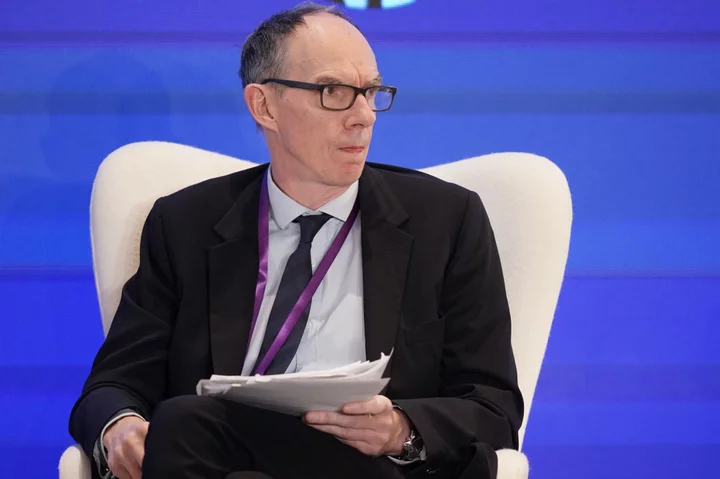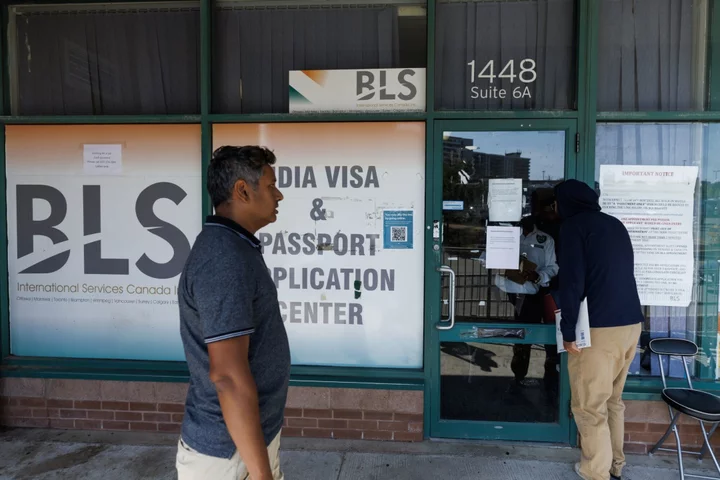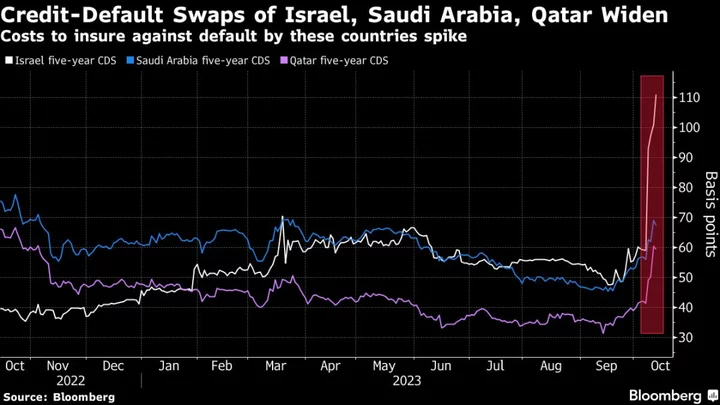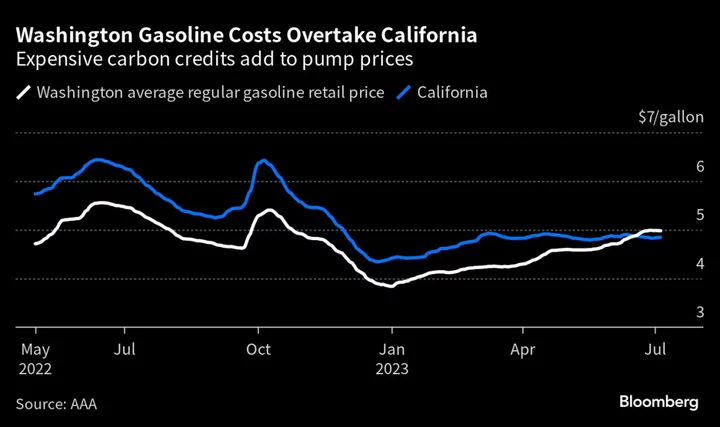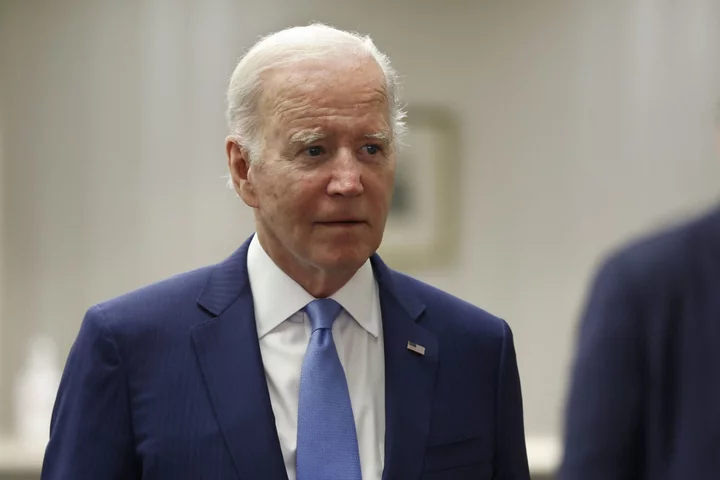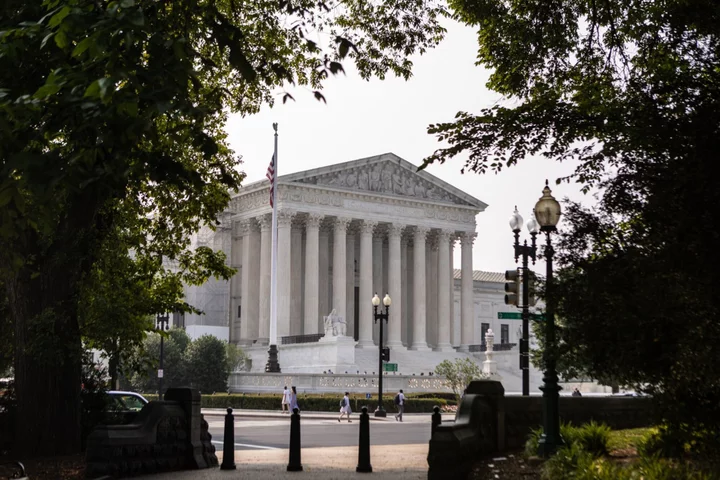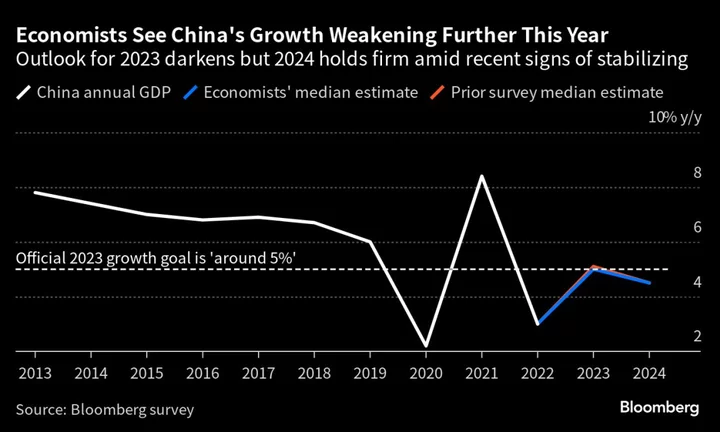UK inflation is becoming more “home-grown” and will be “challenging to squeeze out of the system,” according to Bank of England Deputy Governor Dave Ramsden.
Speaking in a Bloomberg TV interview from Hong Kong, Ramsden said monetary policy would have to stay “restrictive for an extended period of time” in order to get inflation back down from 4.6% to the 2% target. That’s despite BOE forecasts which show a bleak growth outlook for the economy, with a 50-50 chance that it will dip into a recession.
Ramsden pointed out that headline consumer prices inflation is currently less than half of what it was a year ago. “But that’s been driven down by a bigger fall in the energy component than we were expecting,” he said.
He explained that services inflation, which makes up 45% of the consumer basket used to calculate the CPI inflation number, was “actually much stickier and higher than we were expecting at 6.6%.”
“That’s really a sign that UK inflation is becoming much more home-grown,” Ramsden said. “We think that inflation is going to be really challenging to squeeze out of the system. It’s driven by wages, where wage growth remains above 7%. The service sector in the UK is very labor-intensive. So these factors are what’s leading us to think that inflation is going to stay stubbornly high through next year.”
Ramsden joins BOE policymakers from Governor Andrew Bailey to Chief Economist Huw Pill in pushing back against the idea of starting to reverse their string of 14 hikes over the last two years.
As recently as the start of last week, markets were leaning towards a cut in June next year as the economic outlook deteriorated. They are now not pricing in a reduction from the current 5.25% until August. Stronger survey data and big tax cuts announced by Chancellor Jeremy Hunt in his Autumn Statement last week are among the factors prompting investors to rein in their bets.
Some worry that the fiscal stimulus, an attempt to boost the fortunes of the ruling Conservative Party ahead of an expected election next year, will be inflationary. Ramsden said the BOE would look at the impact of the measures on the economy during its next Monetary Policy Committee meeting in December.
Echoing comments from his MPC colleagues that the hardest part of the battle against inflation lies ahead, Ramsden said interest rates would have to “stay high for an extended period.” Markets are pricing in only two 25 basis-point cuts next year, with another in early 2025.
Ramsden’s comments came after he told a central bank conference in Hong Kong earlier Tuesday that transparency from government is needed in an elevated rates environment.
Referencing the market chaos caused a year ago when then-Prime Minister Liz Truss’s government announced a £45 billion ($56.8 billion) package of unfunded tax cuts without involving the Office for Budget Responsibility, which monitors the public finances, Ramsden said: “That really does underpin a period when you are seeing a likelihood of interest rates higher for longer — the importance of institutions and the importance of transparency.”
He added: “It’s really important I think that markets see that you’re being completely transparent in the way you’re presenting those developments,” when it comes to tracking the borrowing costs for government, as well as households and businesses, he noted.
--With assistance from Rebecca Choong Wilkins.

